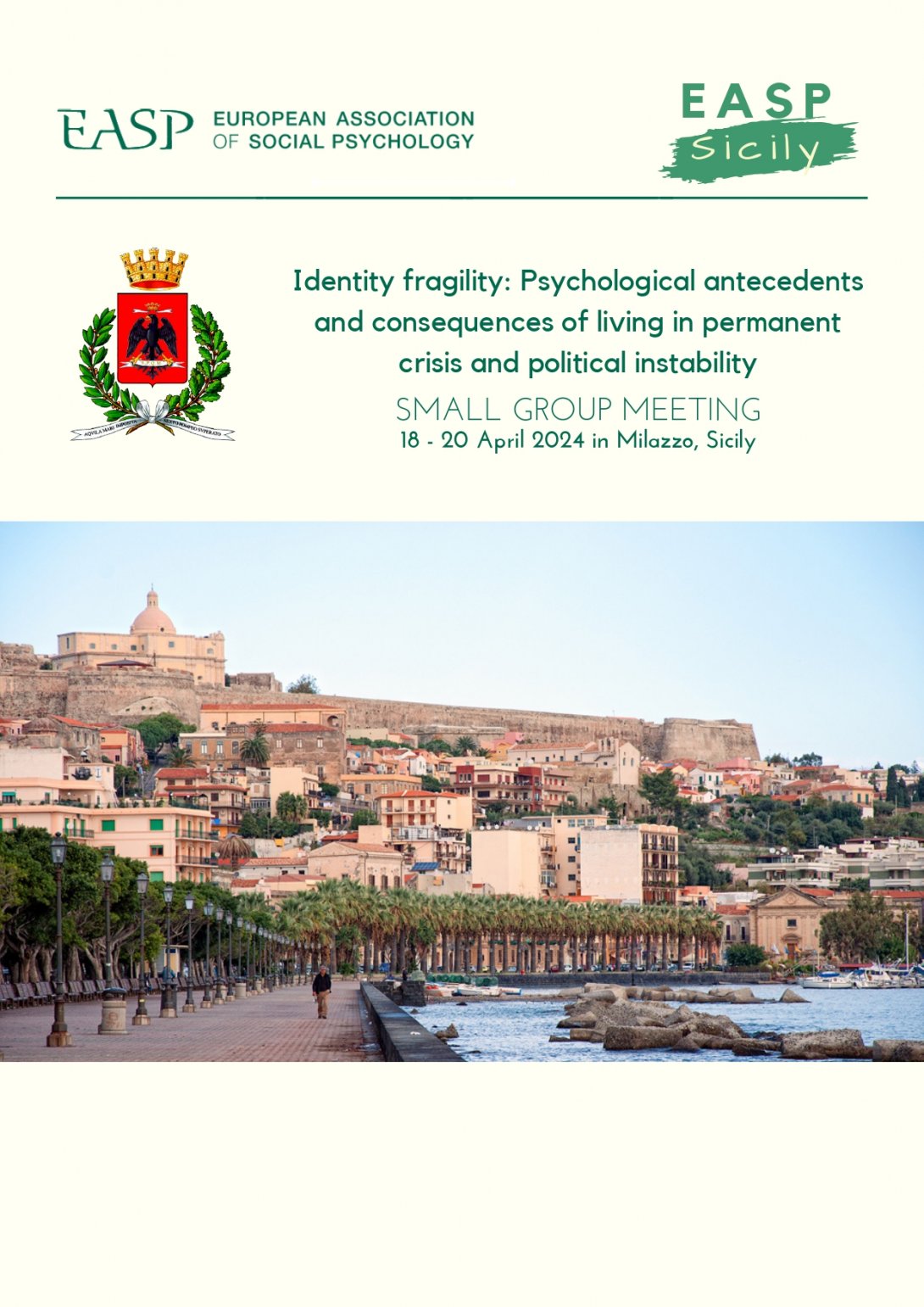
EASP meeting
Identity fragility: Psychological antecedents and consequences of living in permanent crisis and political instability
The 2024 EASP meeting aims to bring together research regarding the psychological antecedents and consequences of fragile identities. By fragile identities we mean collective group memberships that are likely to emerge as a response to experiencing adverse events including forced displacement, wars (e.g., in Syria and Ukraine), atrocities and hate crimes against minorities on the one hand, and a response to a threat of change in the lifestyle and values of majority populations (i.e., White fragility) on the other. Specifically, the 2024 EASP meeting will bring together researchers who examine how fragile identities come about as a result of collective experiences, collective memory and current political processes, as well as researchers who work on its influence on intergroup relations, both in the area of intergroup conflict and hostility, and in the area of solidarity, moral identity, reconciliation and collective action participation. The meeting will focus on the conditions of identity fragility among advantaged and disadvantaged groups, the topics of social inclusion and exclusion, allyship, solidarity, protection of human rights, support, and opposition to multiculturalism as they are triggered by historical experiences and contemporary atrocities in different geopolitical contexts within and beyond the European continent.
The 2024 EASP meeting will take place in Milazzo, Sicily, on 18-20 April 2024. Sicily is a region of Europe that is attractive to international tourism, known for its hospitality and generally affordable costs of travelling. In addition to its attractiveness for tourists, the island is centrally affected by the refugee crisis as it is one of the main landing points and a transit zone for forced migrants and refugees.
The meeting will include 27 Junior and Senior researchers. They will present their original research in a single small session format.
Organizing Committee:
Maria Chayinska, University of Messina
Anna Kende, Eötvös Loránd University
Barbara Lášticová, Institute for Research in Social Communication, Slovak Academy of Sciences
Xenia Daniela Poslon, Institute for Research in Social Communication, Slovak Academy of Sciences
Patrice Rusconi, University of Messina